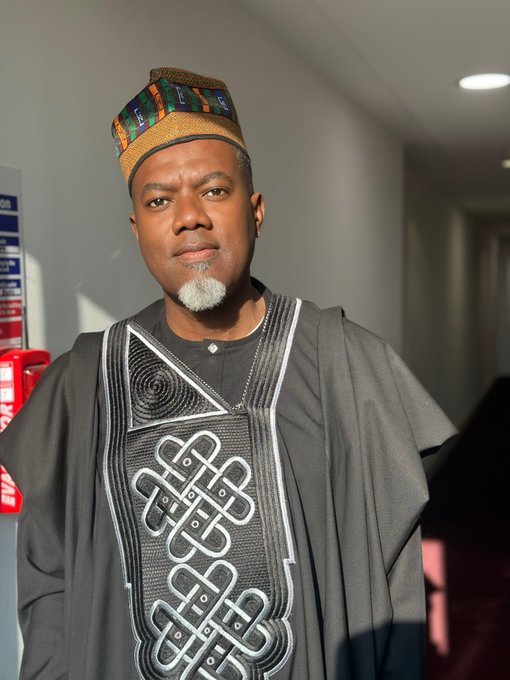In a sharp rebuke to former Kaduna State Governor Nasir el-Rufai, political commentator Reno Omokri has dismissed allegations that President Bola Tinubu’s government is engaging in a policy of “Yorubanisation.” Omokri, known for his vocal political stances, strongly criticized the narrative being spread by el-Rufai, calling it nothing more than baseless propaganda aimed at stirring ethnic tensions.
El-Rufai’s Claims: A Stale Propaganda
El-Rufai, whose political influence has spanned several administrations, had accused President Tinubu’s government of prioritizing Yoruba interests in key national appointments. The former governor’s claims were echoed across social media and political circles, with the implication that the Southwest region was gaining disproportionate influence in Tinubu’s cabinet.
However, Omokri vehemently disagreed with these claims, accusing el-Rufai of using the same tactics he once employed to bring down former President Goodluck Jonathan. In a recent post on X (formerly Twitter), Omokri argued that el-Rufai was repeating the divisive rhetoric that helped to destabilize the Jonathan administration and had no factual basis in the context of Tinubu’s government.
“Nasir el-Rufai is using the same stale propaganda that he and his vile agents on social media used to turn Nigerians against President Jonathan. Why does he only do this when we have a Southern President? He succeeded in removing former President Jonathan. Did your life improve after Jonathan was defeated?” Omokri wrote, challenging the validity of the claims.
The Myth of ‘Yorubanisation’
One of the primary allegations levelled by el-Rufai is that President Tinubu’s government is engaging in a strategy to place Yoruba people in key government roles, thereby creating a government that disproportionately favors the Southwest region. However, Omokri, backed by a breakdown of current government appointments, dismissed this theory as a myth.
Omokri pointed to the leadership of the Nigerian National Petroleum Company Limited (NNPCL) as evidence that the claim of “Yorubanisation” was unfounded. While the board of the NNPCL does include a few Yoruba members, Omokri pointed out that the leadership roles are more diverse, with significant representation from other regions, particularly the South-South and North-Central zones.
For example, the current CEO of the NNPCL, Mallam Mele Kyari, hails from the Northeast, while other critical roles are occupied by individuals from various other regions, including the South-South, Northwest, and North-Central. The inclusion of figures such as Heineken Lokpobori (South-South), Ekperikpe Ekpo (South-South), and Ambassador Nicholas Agbo Ella (North-Central) in positions overseeing oil and gas ministries, further contradicts el-Rufai’s assertions.
“The so-called Yorubanisation or Yorubacentricity of government under President Bola Tinubu is a myth,” Omokri stated. “And if anyone chooses to push this discredited theory, Nigerians should not just accept broad accusations without data and statistics.”
A Regional Breakdown of Appointments
In a detailed breakdown, Omokri challenged critics to provide specific statistics to support the claim that the Southwest was disproportionately represented in key governmental roles. Referring to the leadership of prominent revenue-generating agencies such as the NNPCL, Nigerian Ports Authority (NPA), Federal Airports Authority of Nigeria (FAAN), Nigerian Communications Commission (NCC), and the Nigerian Maritime Administration and Safety Agency (NIMASA), Omokri showed that appointments were more regionally balanced than critics suggested.
“Let us consider the facts. Only two board members of the NNPCL are from the Southwest. If there is any dominance, it’s from the South-South, followed by the Northwest, Northeast, and North-Central,” Omokri elaborated.
He further highlighted that the leadership of key revenue-generating bodies like the NPA, FAAN, and NCC reflects a wide geographical distribution. For instance, the CEO of NPA, Abubakar Dantsoho, is from the Northeast, while Dr. Aminu Maida, the CEO of NCC, hails from the Northwest. Only two of the top six revenue-generating agencies (NNPCL and FAAN) are led by individuals from the Southwest.
“Where is the Yorubanisation or Yorubacentricity in this? The narrative doesn’t hold up under scrutiny,” Omokri stressed, urging Nigerians to demand verifiable data from those peddling such claims.
El-Rufai’s Hidden Agenda?
Omokri also questioned the motivations behind el-Rufai’s campaign, asking what the former governor stood to gain by promoting divisive narratives that could potentially disrupt the unity between the North and the Southwest. He expressed concern that such rhetoric could destabilize Nigeria’s delicate political balance.
“What does el-Rufai gain by turning the North against the Tinubu government?” Omokri queried. He warned that attempts to create rifts between Nigeria’s regions could have dangerous consequences for national unity, particularly at a time when the country is grappling with numerous challenges.
“If they destroy the bond between the North and the Southwest, they will also put the glue that holds Nigeria together in disarray,” Omokri cautioned.
Rethinking Ethnic Politics
Omokri’s response comes at a time when Nigeria is increasingly sensitive to issues of ethnicity and political representation. The country has a long history of ethnic and regional tensions, and the administration of President Tinubu, who hails from the Southwest, has faced scrutiny over its appointments and perceived favoritism. However, Omokri’s comprehensive rebuttal to el-Rufai’s claims invites a broader discussion about the dangers of ethnic politics in Nigeria.
Rather than indulging in divisive narratives, Omokri suggested that Nigerians should focus on fostering a sense of national unity and prioritize competence over ethnic considerations in political appointments. He called on citizens to engage in critical thinking and demand transparency from their leaders.

